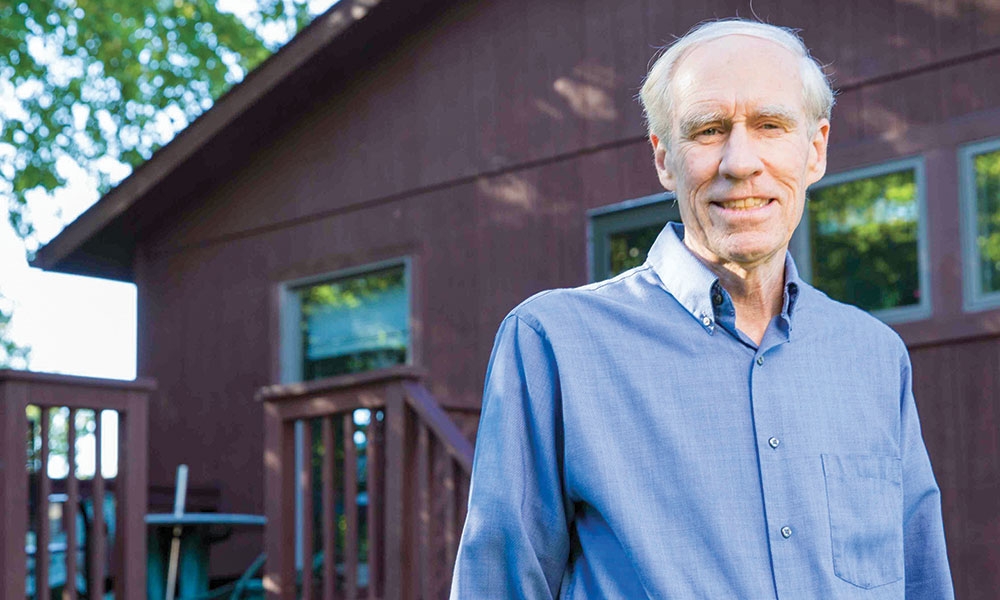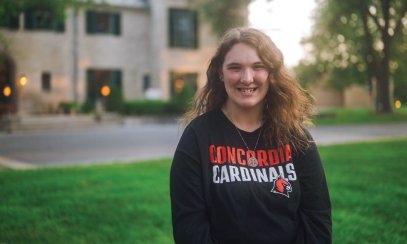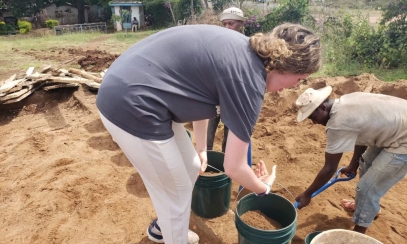
Setting Captives Free
Friends of the Master in Ypsilanti is a Catholic ministry that supports previously incarcerated persons through Christ-centered, Benedictine-inspired, transitional communities. This month, FAITH sought to learn more.
Friends of the Master in Ypsilanti is a Catholic ministry that supports previously incarcerated persons through Christ-centered, Benedictine-inspired, transitional communities. This month, FAITH sought to learn more.
It's doubtful St. Benedict of Nursia, the father of Western monasticism, could have imagined he would inspire a ministry designed to help men coming out of prison some 1,500 years after his death. Still, as St. Benedict knew, all things are possible with God.
And so it is that Friends of the Master, Christ-centered and Benedictine-inspired, is focused not only on rescuing convicts but teaching them how to avoid returning to prison. The foundation is faith.
“This is transitional housing for men coming out of jail, prison or rehab programs, “ says Deacon Jack Flanagan, who has been involved with the program since 2010 and sits on its Board of Directors. “But like Psalm 127 says, 'Unless the Lord builds the house, those who labor, labor in vain.' Because part of Benedictine spirituality is hospitality, we're trying to underscore that. So, meals together, morning prayer together, Bible study in the evening and so forth.”
Friends of the Master was founded in 2005 by the late Rob Carpenter of St. Patrick's in Brighton. Flanagan and Carpenter were volunteers at the Washtenaw County Jail, where they ran an RCIA program together for two or three years, Flanagan says, and they talked often between themselves and with inmates about recidivism, which is the tendency of a criminal to end up back in the corrections system.
“The idea of Friends of the Master is that guys were getting out of jail and returning through the revolving door of recidivism because there was no healthy place for them to go,” he explains. “You go back to your old environments, you pick up your old ways. We would say things like, 'Show me your friends and I'll show you your future.'”
Flanagan says most residents have some sort of addiction. Most common are alcohol and drugs, but there also are men with sexual addiction. Sexual addiction treatment is not a strength or emphasis, “but we have a couple of men here who have benefited from being here” — and they also are required to participate in 12-step programs.
All residents are required to participate in three meetings a week, a Bible study, an “open topic” and a 12-step meeting, Curry explains. Newcomers must attend five weekly meetings. The Benedictine spirituality approach requires each resident to have a strong interest in deepening their faith, which both Curry and Flanagan agree is critical to the success of rehabilitation.
“We go outside for the 12-step meetings because the guys need to be in the community of recovery, not just at Friends of the Master,” Curry explains. “So on Thursdays, a majority of us go to a place right down the street where they have a 12-step Alcoholics Anonymous meeting. And then on Wednesday, it's an 'open topic.' Right now, we are going through a series of things at the open topic, which is 12 steps in Christ. On Tuesdays, we do Bible study.”
Friends of the Master, which actually is two separate houses across Washtenaw Avenue from each other in the shadow of the Ypsilanti Water Tower, has its share of financial challenges, Flanagan says.
“We are operating at a deficit,” he said. “But any faith venture needs God all the time. I go back to that psalm, the Lord built the house. This is where we are walking at Friends of the Master, day to day, praying that the Lord gives us this day our daily bread.
“It keeps us on our knees.”



